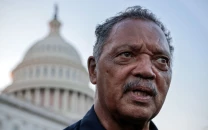Amnesty condemns India's execution of parliament attacker
Rights group notes that the Mohammad Afzal Guru's trial fell "considerably short" of fair standards.

"We condemn the execution in the strongest possible terms," said Shashikumar Velath, programmes director of Amnesty's India wing.PHOTO: amnesty.org
Mohammed Afzal Guru's execution also suggested a "disturbing" trend towards the resumption of death penalty use in India, said the global human rights group.
"We condemn the execution in the strongest possible terms," said Shashikumar Velath, programmes director of Amnesty's India wing.
Guru, convicted of conspiracy to attack the parliament, waging war against India and murder, was hanged at New Delhi's Tihar Jail early on Saturday after President Pranab Mukherjee rejected a mercy appeal.
India says the death penalty is reserved for the "rarest of rare" cases, and the execution came after the government hanged the sole surviving gunman from the 2008 Mumbai attacks, Pakistan-born Mohammed Ajmal Kasab, in November last year.
The executions have ended an undeclared eight-year moratorium on use of the death penalty.
New York-based Human Rights Watch earlier described Guru's execution as an "inhumane punishment".
Guru, 43, was arrested after five gunmen stormed parliament in New Delhi on December 13, 2001, killing nine people before security forces shot them dead. A journalist who was wounded died months later.
There were "serious questions" about the fairness of Guru's trial as he did not receive legal representation of his choice or a lawyer with adequate experience, said Velath.
Guru was tried by a special court set up under India's Prevention of Terrorism Act, "a law which fell considerably short of international fair trial standards", he added.
The Indian law was repealed in 2004 after allegations of its widespread abuse.
Amnesty said it was still unclear whether Guru was given an opportunity to seek a judicial review of the decision to reject his mercy petition -- a practice that has been followed in other Indian cases.
The rights group also noted Guru's family in Kashmir said they were not informed of his imminent execution, in violation of international standards on the use of the death penalty.
The body was also not returned to the family for last rites and burial, in violation of international standards, the group added.



















COMMENTS
Comments are moderated and generally will be posted if they are on-topic and not abusive.
For more information, please see our Comments FAQ